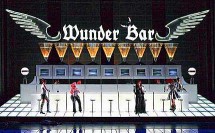Category Archive: MUSIC
Funerary Music
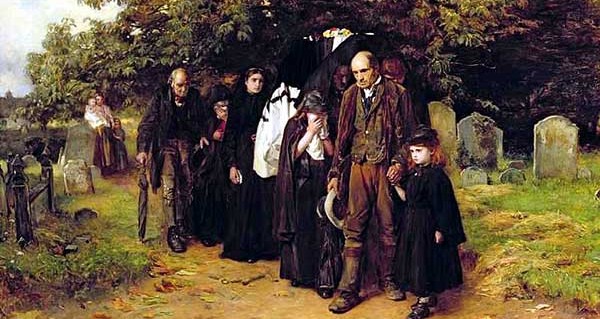
The Village Funeral (Frank Holl, 1872) Leeds City Art Gallery
THE ETHER IS AWASH WITH DESIRED SONGS FOR FUNERALS – THEY’RE COMMON AS MUCK, OR INTERNET KITTENS. SO HERE ARE SOME MORE! L WANTS: Here Comes the Flood (Peter Gabriel) Not Perfect Day (Lou Reed). OUR FRIEND GRANT WANTS: Funeral For a Friend (Elton John) at commencement Comfortably Numb (the Pink Floyd original, not the Scissor Sisters‘ version – although we like that as well) Roll Away the Stone (Leon Russell) at conclusion. P THINKS A SAMPLE OF THESE MIGHT SUIT HIM: It’s Time (Elvis Costello) The Final Taxi (Wreckless Eric) Trauermarsch (Richard Wagner) + (maybe) The deformed lady singing In Heaven…
Continue Reading →The Adelaide Ring
(2004: Recording 2012) The Varnished Culture is leery of greatest hits records. Everyone’s CD cupboard bursts with them, especially those replenished after an insurance claim. Yet with The Ring, one can make an exception. Especially when this is the only record of the sublime Adelaide production seen in 2004, when little Adelaide’s gallant attempt to simulate Bayreuth was almost scuttled by a relatively new State Government (which is still the State Government) quibbling about funding. Thankfully, a Commonwealth Grant to the Melba Foundation cleared the way. The Adelaide Ring was the first ‘ground up’ production in Australia and many feared it would be…
Continue Reading →Requiem
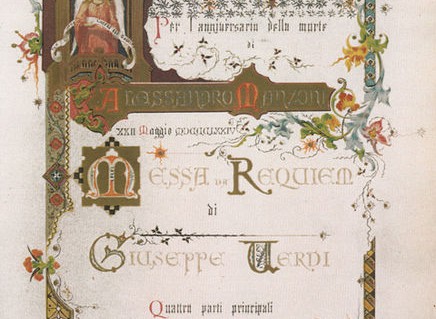
SA Dante Society, 17 August 2015 At the Italian Centre on Monday evening the Society was treated to an early taste of Verdi’s tempestuous, mighty and dramatic requiem mass. This will be performed with full chorus and the Adelaide Symphony Orchestra on 26 and 28 August, as conducted by Timothy Sexton. Maestro Dr Joseph Talia OAM gave a lucid and learned backgrounder, virtually extemporaneously, as to the sources, anxieties and influences on Verdi in the creation of this unique liturgical music, operatic in style and inspired by the life and death of Alessandro Manzoni, whom he revered. Verdi grappled with the…
Continue Reading →Stop Mucking About
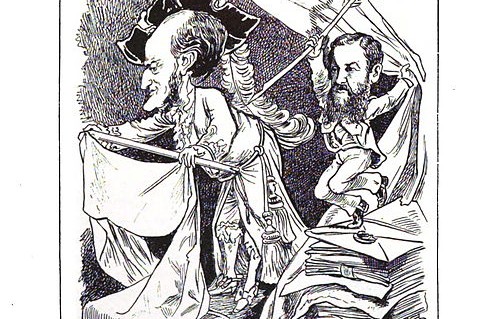
A terrific and informed wrap-up of the Sydney Symphony orchestra’s Tristan und Isolde concert is to be found in the Richard Wagner Society of SA Inc’s August newsletter. The Varnished Culture did not attend the evening in Sydney, but we commented on some of the issues in our wrap-up, Great Hall. The general consensus is that the placement of the singers at the back of the hall, behind the orchestra, was an acoustic mistake, and the video projections a profound artistic error. The adverse effect of this mucking about is obvious; the motive is unclear. Lee Brauer’s perceptive account of the recent RWS…
Continue Reading →Turandot
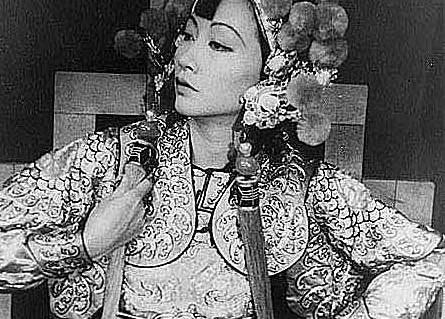
Anna May Wong as Turandot, 1937
(Opera Australia, Sydney Opera House, 18 July 2015) By Guest Reviewer The majesty of the Chinese culture is a background piece when put against the heart and soul of Puccini’s Turandot. Saturday night at the Sydney Opera House, amidst coats scarves and freezing conditions, we were engulfed by the warmth and escapism of this story. Being directed and choreographed by Graeme Murphy, the production was full of flowing moves, giving us moments of not knowing where to look. So much, so many and so… well at one moment I thought ‘opening ceremony’ meets mardi gras..but that is harsh. It may…
Continue Reading →
